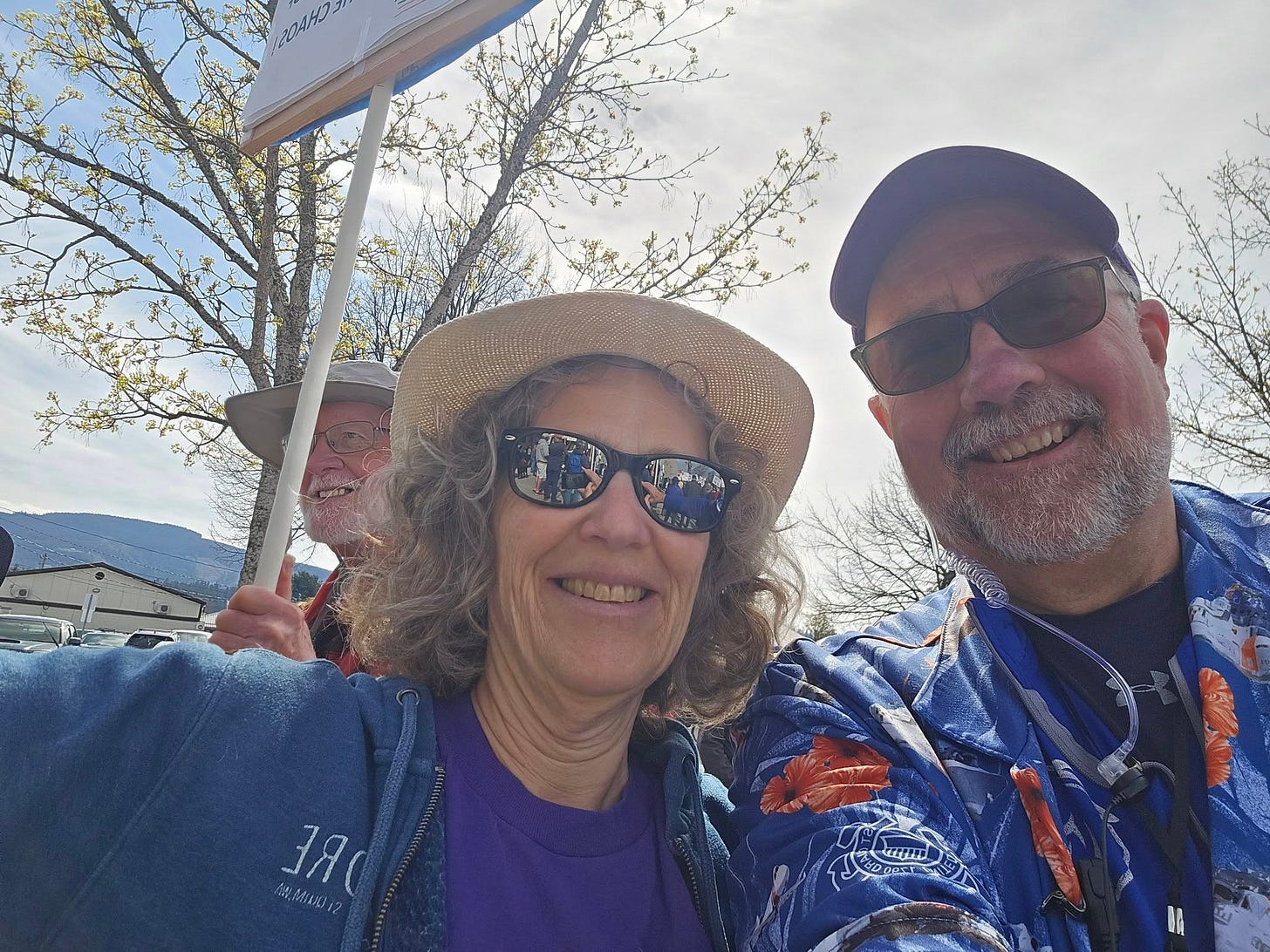The Charter Review Commission promised a public survey to “listen to the people.” Instead, it manipulated the questions, buried the results, and is now trying to downplay what the public actually said. Two powerful amendments—one on district-only voting, another on political conflicts of interest—have overwhelming support, but commissioners are stalling.
The much-hyped community survey from the Clallam County Charter Review Commission was sold as a way for citizens to shape their local government. But from the beginning, it looked more like a PR move than public outreach — and now that the results are in, some commissioners are doing their best to downplay, deflect, or outright ignore the feedback they asked for.
Who picked the questions?
Chair Susan Fisch unilaterally handed survey creation duties to a subcommittee led by her close ally, Commissioner Jim Stoffer, chair of the Town Hall Outreach Committee. This wasn’t a Commission vote — it was a personal decision, made behind the scenes.
The result? A seven-question survey designed not by the public, and not by the full commission, but by Stoffer’s subcommittee. The questions didn’t reflect what other commissioners had prioritized, nor what residents were actually saying at town halls or in emails. Instead, they reflected the subcommittee’s own priorities — and in several cases, came off more like push polls than honest inquiries.
One question wasn’t even a question — it was a statement. The controversial “Water Steward” position was phrased to sell the concept, not gauge support.
And none of the questions asked what the public wanted to see on the November ballot — instead, they asked how people would vote if certain things appeared.
A subtle shift with big implications: it gives commissioners cover to quietly bury proposals they don’t like — even if the public overwhelmingly supported those issues.
Where were the results?
Once the survey closed, the results were buried for 10 days — then dropped just hours before a Charter Review Commission meeting. That left commissioners scrambling, with no time to draft or introduce any charter amendments based on the data. The delay pushed action back two weeks. With the deadline for ballot measures looming, that stall tactic might just be enough to run out the clock.
When the results finally emerged, they showed 1,457 responses — a massive increase from the 40 people who participated in the 2020 survey. And yet, Commissioner Stoffer immediately dismissed the outcome as insignificant, since only 2.5% of the county’s 59,000 registered voters had responded.
Strange, considering that just 98 signatures were enough to grind the Towne Road realignment project to a halt for nearly two years. So what counts as “significant”? Apparently, it depends who benefits.
Email overload — or oversight?
Then came the tech excuses. Commissioner Patti Morris, who managed the survey, revealed that the results “overloaded my Verizon,” indicating she used her personal email for official county business. How many responses bounced, were lost, or miscounted due to her overloaded inbox?
There was also no clarity on whether results were affected when the order of “Yes” and “No” options on the ethics question was mysteriously flipped mid-survey. Morris said that didn’t happen, and that “yes” was always the top option. The survey says otherwise.
As for public comment? Despite 1,400+ responses, Morris claimed only three comments were received. When I pointed out that my comments were missing, Morris insisted all were captured. If you’re confused, you’re not alone.
This isn’t just clumsy — it undermines public trust. The Washington State Open Public Meetings Act is crystal clear:
“The people... do not give their public servants the right to decide what is good for the people to know and what is not good for them to know.”
And yet, that’s exactly what’s happening here.
But the public did speak: two popular amendments headed for consideration Monday
Despite the chaos, two amendments rising from the ashes of the survey will be introduced at the next Charter Review Commission meeting. Both were strongly supported by survey respondents — and both aim to put power back where it belongs: with the people.
Amendment: Elect county commissioners by district only
Ballot Text:
Shall the Clallam County Charter be amended to require that County Commissioners be elected only by voters residing in their respective commissioner districts, rather than nominated by district and elected countywide?
Why it matters:
Right now, commissioners are nominated by district — but elected countywide. That means voters from Port Angeles and Sequim can decide who represents the West End. That’s not representation — that’s a regional veto.
Clallam voters already passed district-only voting in 2015 by a landslide — 63%. It was reversed in 2020. Now, the 2025 survey shows 74% of participants want to restore district-only voting.
That’s not just a majority. That’s a mandate.
Let each district choose its own commissioner. Forks doesn’t need Port Angeles picking its representative. Sequim doesn’t want the West End choosing theirs. Simple, fair, democratic.
Amendment: Prohibit county officials from serving on boards of NGOs that receive county money
Ballot Text:
Shall the Clallam County Charter be amended to prohibit County Commissioners and other elected officials from serving on the boards of nonprofit organizations that receive direct funding, contracts, or in-kind support from the County, in order to prevent conflicts of interest and ensure impartial governance?
Why it matters:
Right now, commissioners can serve on nonprofit boards that get county grants, contracts, or perks. That’s a blatant conflict of interest.
This amendment says: pick a side. Serve the public or serve the nonprofit — but not both.
Groups like MRSC and NACo warn against exactly this sort of entanglement. Even unpaid board service can blur loyalties, compromise decisions, and raise legal red flags.
Public trust demands independence. This amendment delivers it.
Stop moving the goalposts
When a survey brings results that county leaders like, it’s considered “citizen engagement.” When it doesn’t? Suddenly it’s “non-binding,” “insignificant,” and “just a tool.”
This isn’t just bad process — it’s bad faith. And it breeds deep distrust in our local government.
You can’t have it both ways.
The next Charter Review Commission meeting is this Monday, June 23, at 5:30 p.m. at the Clallam County Courthouse in Port Angeles.
The Charter Review Commission claimed this survey would let the public shape the future of county government. Turns out, it was never about listening—it was about control. But here’s the twist: over 1,400 people spoke anyway. Now it’s the Commission’s turn to decide whether they’ll listen—or just keep pretending to.
















